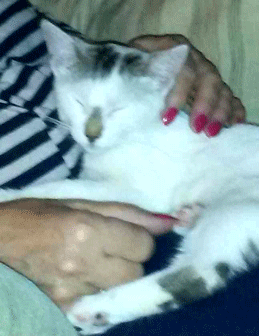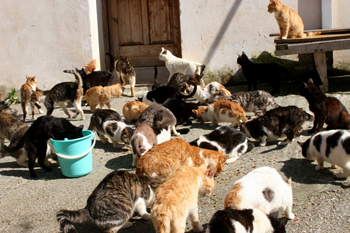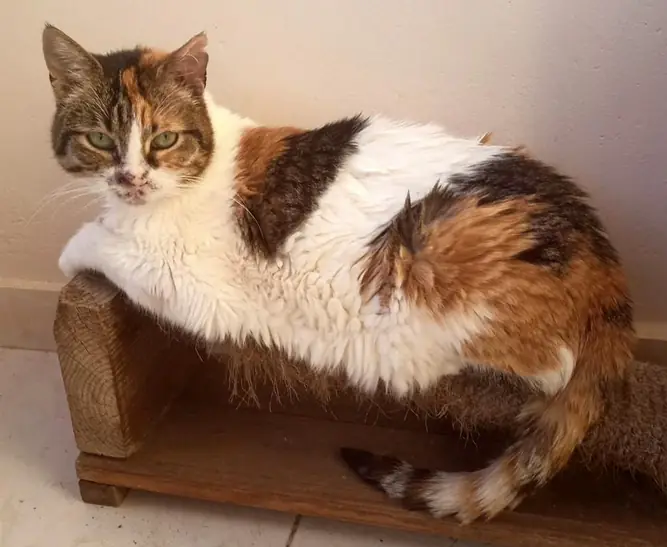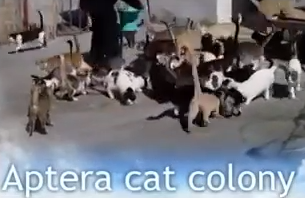Am I ready for this Responsibility?
They’re hungry, they’re breeding and they may be ill or injured. This is the scene that many people come upon BEFORE humans intervene in a feral cat “colony”. A “colony” is the term used to describe a group of unowned wild or stray cats. Feeding is the first step in caring for feral cats, but certainly not the ONLY step and not even the most important step!
Neuter
As stated above, the FIRST step in caring for feral cats is food and water, but the most IMPORTANT step is the NEUTERING of your colony. If food is provided, yet you neglect to follow through with neutering you will double, triple and quadruple your cat population in no time at all. This will be an extra burden to you, your neighbours and the members of your colony, it is unnecessary and brings kittens into a world of disease and overpopulation.
Maintenance
Once all the cats in your colony have been neutered then you can settle into the last step of colony management, which is “maintenance”. Below are the suggested guidelines for Feral Cat Colony Management.
Food
Type: Dry food is recommended for colony feeding because it can remain out all day and not spoil. If you choose to feed wet food, do so in a separate plate or bowl rather than mixing it in with the dry food. Wet food will spoil if not eaten, attract ants and other insects.
When: It is recommended that feeding take place first thing in the morning or during the day for the following reasons:
- The cats can eat all day
- Less chance for attracting wildlife to feeding station at night
- Safer for caretaker
How: One cup of dry food per cat in your colony is plenty. You should, if you are able to, monitor the amount of food the cats leave behind to determine the proper portion. If the food is all gone (and it hasn’t clearly been eaten by wildlife), then you may want to increase the amount. If there is a substantial amount of food leftover you should decrease the amount.
Water
Fresh water should be given each time fresh food is supplied. If water is gone when you visit the colony increase the number of bowls or get a bigger one. It is important that water is available at all times.
The Site
Unless it is on your own private land never locate a feeding station without seeking assistance & permission from the locals &/or council members. It is extremely important to keep the feeding station neat and clean. This is vital not only for the health of the cats, but also for keeping neighbours happy. Keep the food/water dishes clean by having two sets. One at the site, and another clean and available to replace the dirty ones.
Feeding Station
Unless there is a covered area where food/water bowls are kept, a feeding station is recommended to keep the food protected from birds and the weather. Feeding Stations should be kept clean and tidy for the same reasons as stated above. Appropriate designs both practical & attractive should be built to ensure they look clean and tidy.
Insects:
Some ways to keep your food ant/bug free are as follows:
- Feed ONLY dry food – wet food attracts ants more readily
- Surround food bowls with a line of “food-grade” (no chemicals added) diatomaceous earth – This will need to be reapplied after rain, but effectively keeps insects away.
- Apply cooking oil to the outside of the food bowl – Bugs and ants will not walk on oil.
- Place food bowls on a tray, cookie sheet, or plant tray with a 1″ lip and fill container with water. – Cats can get to food, but bugs can’t.
The Healthy Colony Cat
The general health of the cats should be assessed at every opportunity. Note the condition of their eyes and fur. Eyes should be clear without discharge, coats should be clean. Unkempt fur can be a sign of disease and discharge from eyes could mean upper respiratory infections or a sign of more serious illnesses. At the first sign of injury or illness contact us so we can arrange immediate veterinary care and establish a plan of how to get care for the cat.
New Cats/Kittens
Know who your regular/core colony members are versus occasional visitors from the neighbourhood. Newcomers need to be trapped, neutered and then returned to the colony. This is a very important aspect to Colony Management, not all cats in colonies are feral some are abandoned, homeless pets. In some cases these cats can also be rescued from the colony and placed into a foster home until a home is found.
Safety
Although we tend to focus a great deal on the cats, it is equally important that you stay safe while performing your duties as a Colony Caretaker.
- Feed during daylight hours
- Be aware of your surroundings
- Always use common sense
- Do not try to “touch” a feral or sick cat/kitten, if you can pick it up wash your hands & change any contaminated clothing before touching your own pet.
- Do not try to “catch” a sick cat or feral kitten without a trap
- Never go trapping in unfamiliar territory alone, please go in pairs & have a mobile phone available
- Park your car in a safe/legal location
- Make sure your own animals are up to date with vaccinations & parasite treatment’s to prevent spread of infections.
Feral Cat Terminology
Feral Cat – This is a domestic cat that has reverted to the “wild” state after being lost, abandoned, or born in the wild without ever having human contact. Feral cats live in family groups called colonies and can be found anywhere there is food. Feral cats can survive almost anywhere and are found all over the world.
Feral Cat Caretaker – An individual responsible for the health and well-being of a feral cat colony. The caretaker feeds and waters the cats, provides shelter, and is responsible for humanely trapping and taking the cats to a veterinarian for vaccination and neutering.
Managed Colony – A group of cats where all have been neutered, vaccinated, provided food, water and shelter from inclement weather. The colony cats are healthier and no longer breed. The caretaker regularly monitors the colony and individual cats. Feral cats are dependent on the caretaker to enact this plan and provide long-term support. A properly managed colony is a healthy and stable colony in which no kittens are born.
Stray Cat – A domestic cat that has been abandoned or has strayed from home and become lost. Once a companion animal, a stray cat can usually be successfully placed back into a home.
Vacuum Effect – A situation arising when feral cats are removed from an environment. More cats will move in to take advantage of whatever meagre food source is available and quickly fill this void. These new unneutered cats will breed to the capacity of the site.
Keep in mind that removing the current cats may only open the territory to new cats and the process begins all over again. Spaying/neutering and feeding is the only way to control a feral cat colony.
Last Word on Culture: Strongly held religious, social and moral convictions sometimes hinder our work. There is great debate and change in Greek government and society regarding animal welfare reforms, not all locals will be supportive and you may even face open hostility and aggression. Neutering programmes go against the traditional social norms and must be pursued with discretion and caution, overt advertising of intent to neuter is not advisable nor yet possible on Crete.
Thank you for taking the time & care in assisting us in feeding & watching over these vulnerable animals.
Thanks to Solanoferals.org for assistance with these guidelines





